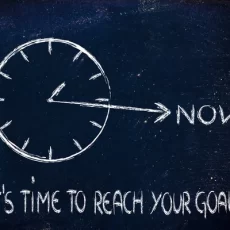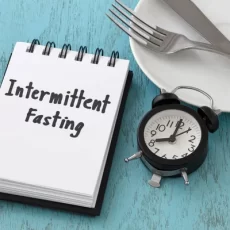“I walk slowly, but I never walk backwards.”
This simple yet powerful quote, often attributed to Abraham Lincoln, encapsulates a mindset of steady progress and unwavering determination. It speaks to the idea that the pace at which we move forward is not as important as the direction we are headed.
- Has “Being Slow” lost its virtue?
- If you are a slow performer, you are looked down upon.
- Are you always pressured to work fast, eat fast, walk fast, run fast?
- Is this pressure of catching the pace killing you?

There is nothing much to worry about. You are moving at your own pace. Sometimes fast runner loses the game. Have not you heard that Slow & Steady wins the race? In our childhood, my father narrated a story about the hare and tortoise and he did that at least once a week. So, it is deeply seated in my mind.
The story goes: A race was organized between a hare and a tortoise. Overconfident “hare,” thought I would win. Obviously, according to his capacity, he started running the race. Tortoise was trailing much behind. When Hare noticed, he thought, why not take some rest, till he catches up. He slept under the tree and sleep caught on, whereas the tortoise kept on walking and reached his destination on time. He won the race!

“Slowing down is sometimes the best way to speed up.” – Mike Vance
This way, everybody has his/ her own pace to accomplish jobs. You should identify your pace and act accordingly. In today’s times, everybody wants faster results, reaching their targets in an instant. In such a scenario, slow performers are looked down upon. Even slow performers are achievers, in their way. They are stress-free and worry-free and become happy when the goal is achieved. Being happy is a big achievement.
Unfortunately, it has been noticed that people are in a big rush to achieve everything, the corporate scene is cut-throat. Even students are under tremendous pressure to complete their targeted studies as compared to their peers. This is affecting their physical and mental health. They are suffering from depression and other similar ailments; some are even moving to the brink. This creates an unhealthy balance in the families and society at large.

Here, patience must underlie deliberate slowness. Almost any goal is achievable within a long enough time frame. However, the longer the time frame, the more patience you must exert to keep your behaviour consistent throughout this time. If you set the goal of investing 10,000 per month, but give up in less than a year, you will not achieve any meaningful increase in your investment. Hence, a longer time frame should be preferred for your investment to grow.
“Slow living provides an opportunity to step back, pay attention, and question the ways we use technology, to recalibrate our relationship with the constantly switched-on, logged-in world.” Brooke McAlary, SLOW
Patience forces you to focus on the process towards a goal, instead of just the result. The person who sprints at the beginning of a marathon is focused only on the end, not the steps beneath her feet. Once you admit that following a pace is necessary, you become focused on the steps. Once you accept slowness, you may even enjoy the path to the finish line.
I would like to draw your attention to the technology-ruled world we are living in, but before that, you read this quote:
“Slow living is a curious mix of being prepared and being prepared to let go. Caring more and caring less. Saying yes and saying no. Being present and walking away. Doing the important things and forgetting those that are not.” Brooke McAlary, SLOW

You would not have agreed to more!
While scrolling your mobile, you will notice the posts which claim that you can achieve the following things:
- Lose 20 pounds in one month
- Write your dream book in 30 days
- Invest 10K and become a millionaire in months
- Learn dancing in 7 classes
- Be a musician in 30 days
Do you believe in this? You have reason to as these posts are so convincing. But it is just not possible. Do not believe in these. Even, if they do, how much this would do to your physical and mental health? Have you thought about it?
Say, if you make a fitness goal, you deliberately make the progress slower than it needs to be. Instead of gaining 10 pounds of muscle in one month (as many people ambitiously strive for), you need to place that goal 3-6 months ahead. By taking longer, you can focus on doing it properly and making the necessary changes to diet and health. Also, by making changes slowly, you can eat healthy, without eating unhealthy diets just to force your body to adapt.
We spoke of health, now wealth. So, when it comes to wealth, a common mistake is to confuse these short and long-term time horizons. By assuming self-improvement functions the same way in six months as it does in six years, you make two errors. First, you greatly overestimate the amount you can realistically accomplish in six months. Second, you underestimate the power that deliberate slowness has in six years.
Owing to this thin dividing line, you would be incredibly optimistic if you felt that you could permanently increase your income by 30% in the next month. However, you would consider it completely reasonable that you could triple your income in the next six years.
If you do not engage in deliberate slowness, you risk sliding back to the beginning.
Hence, try being slow in a strategic manner and be happyHo.





